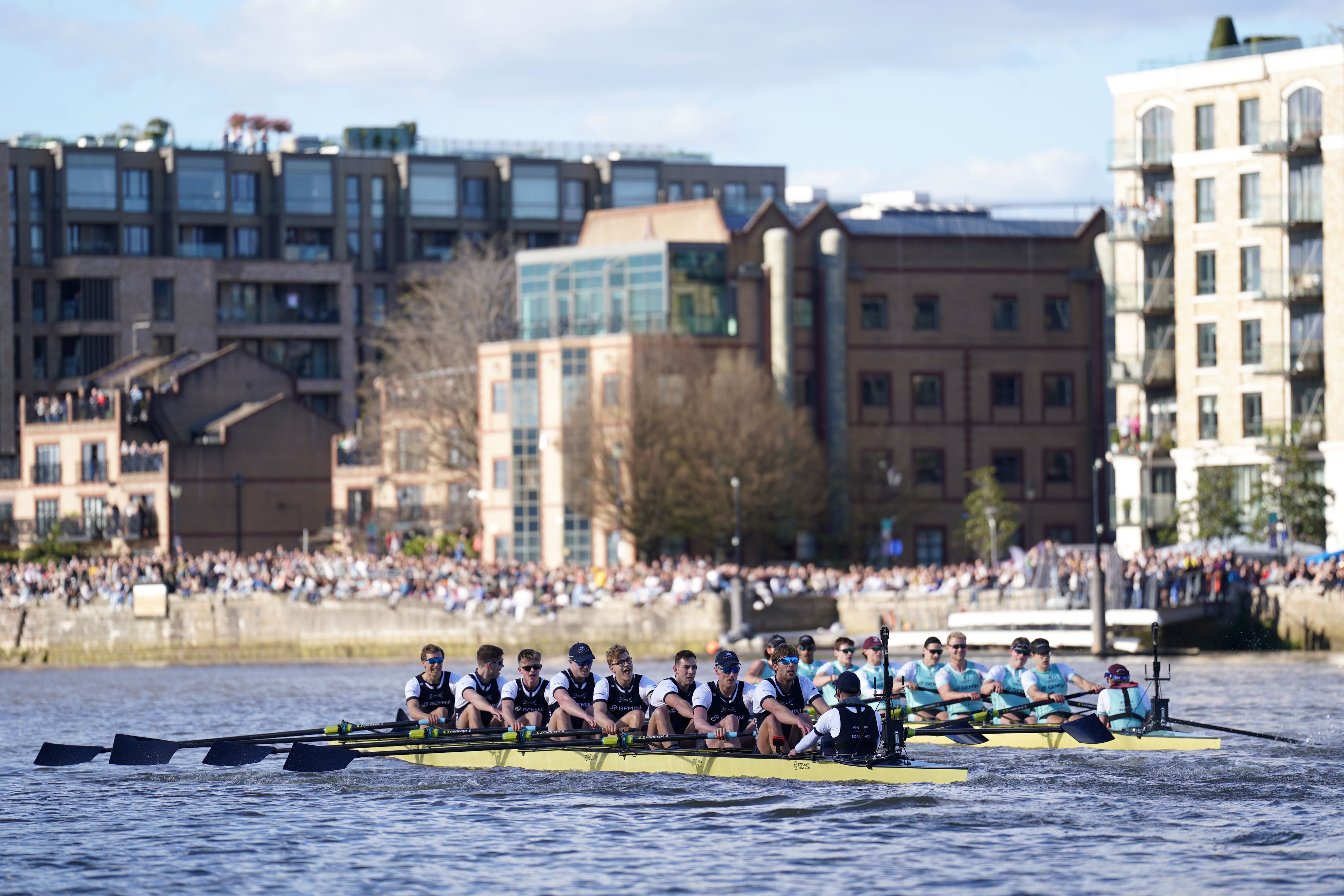Rower criticises ‘poo in the water’ after world famous boat race
‘It would be a lot nicer if there wasn’t as much poo in the water’

Your support helps us to tell the story
From reproductive rights to climate change to Big Tech, The Independent is on the ground when the story is developing. Whether it's investigating the financials of Elon Musk's pro-Trump PAC or producing our latest documentary, 'The A Word', which shines a light on the American women fighting for reproductive rights, we know how important it is to parse out the facts from the messaging.
At such a critical moment in US history, we need reporters on the ground. Your donation allows us to keep sending journalists to speak to both sides of the story.
The Independent is trusted by Americans across the entire political spectrum. And unlike many other quality news outlets, we choose not to lock Americans out of our reporting and analysis with paywalls. We believe quality journalism should be available to everyone, paid for by those who can afford it.
Your support makes all the difference.A rower has criticised conditions in the River Thames during the Boat Race, saying: “It would be a lot nicer if there wasn’t as much poo in the water.”
All crews were given safety guidance on a range of preventative measures, from covering up scrapes with waterproof plasters to ensuring rowers avoided swallowing any water that splashed up from the Thames.
Research earlier this week found high levels of E. coli were in the part of the river used for the annual race between the University of Oxford and the University of Cambridge.
After the race, Oxford rower Leonard Jenkins told BBC Sport: “This morning I was throwing up and I wasn’t sure I was going to be able to race.
“I kept that quiet and ultimately that’s on my shoulders, it may not have been the right choice because I didn’t have my all to give in that race.
“It would be a lot nicer if there wasn’t as much poo in the water.
“It’s not to take away from Cambridge, as we may not have beaten them even if we were all on top form.”
However, Mr Jenkins’ team-mate Will Denegri was more reluctant to blame team illnesses and water conditions for their loss.
He said: “This week we’ve had three people who have had to miss sessions because they’ve had stomach bugs, essentially.
“Whether that’s related to E.coli in the river I don’t know, but it’s certainly not helped our campaign, and it’s a poor excuse.
“It’s not an excuse, but it definitely hasn’t helped our preparation.”

Both the men’s and women’s races were won by the University of Cambridge.
While the winning team traditionally throw their cox into the water, the Cambridge women’s team instead lifted their team-mate Hannah Murphy up inside the boat.
The Cambridge men’s cox Ed Bracey initially said he would not mind being thrown into the river, but instead had a bucket of clean water dumped on his head after his coach overrode him and said they “don’t want to take any risks”.
Ms Murphy said afterwards: “It is what it is. I think we want to support the research that’s being done and the guidelines by British Safety.
“It’s not really that important, ultimately.”
Regular testing conducted by River Action and the Fulham Reach Boat Club between February 28 and March 26 detected E. coli, which can cause serious infections.
The 16 tests around Hammersmith Bridge in west London indicated an average of 2,869 E.coli colony forming units (CFU) per 100ml of water.
The Environment Agency’s quality standards level requires below 1,000 CFU per 100ml.
The highest level recorded was 9,801 CFU per 100ml, nearly 10 times higher than levels graded as “poor” by the regulator.
River Action said the testing locations in its research suggested the source of pollution is from Thames Water discharging sewage directly into the river and its tributaries.
The Metropolitan Police said they had made four arrests after officers had prevented protesters from disrupting the race.